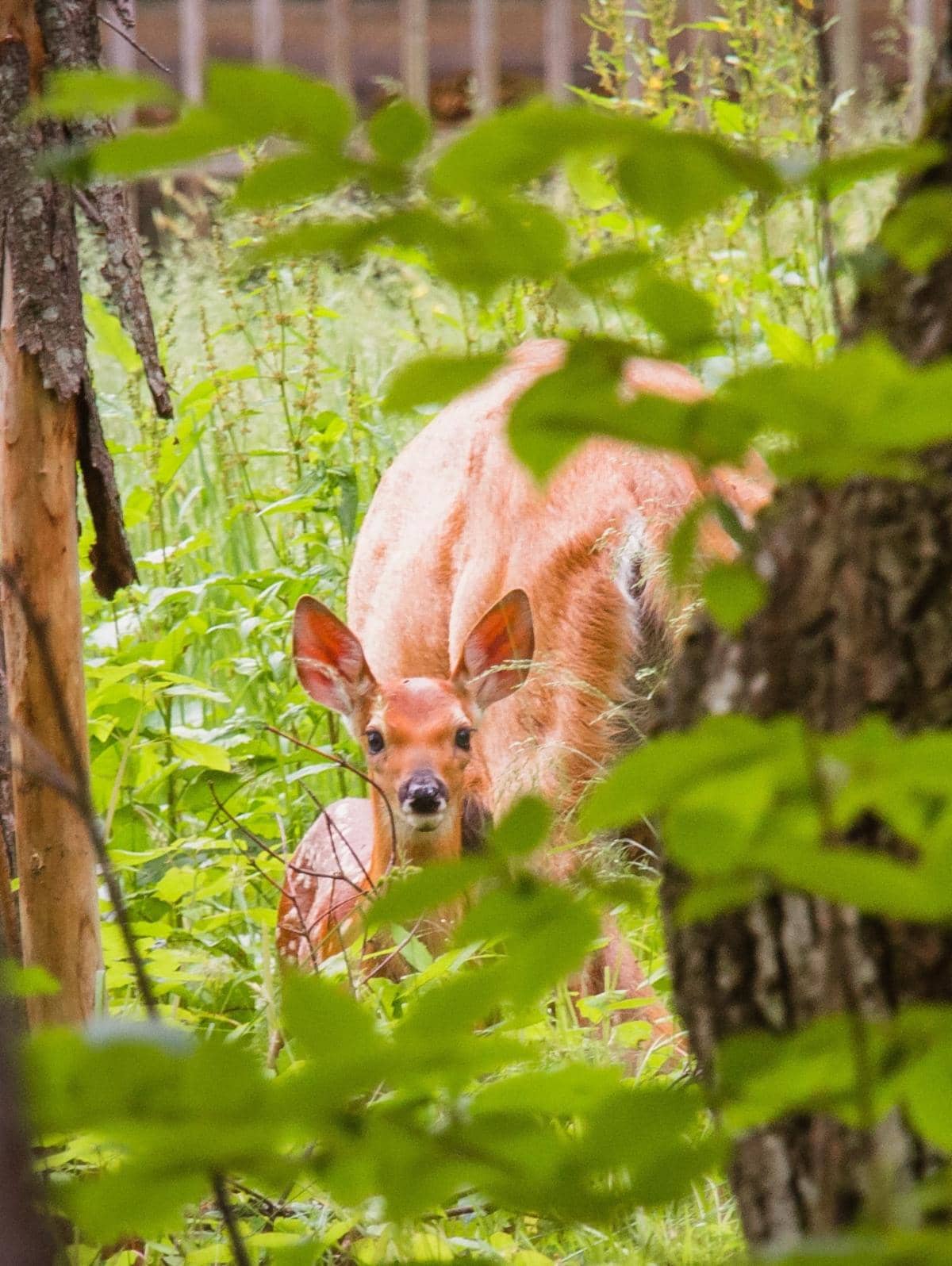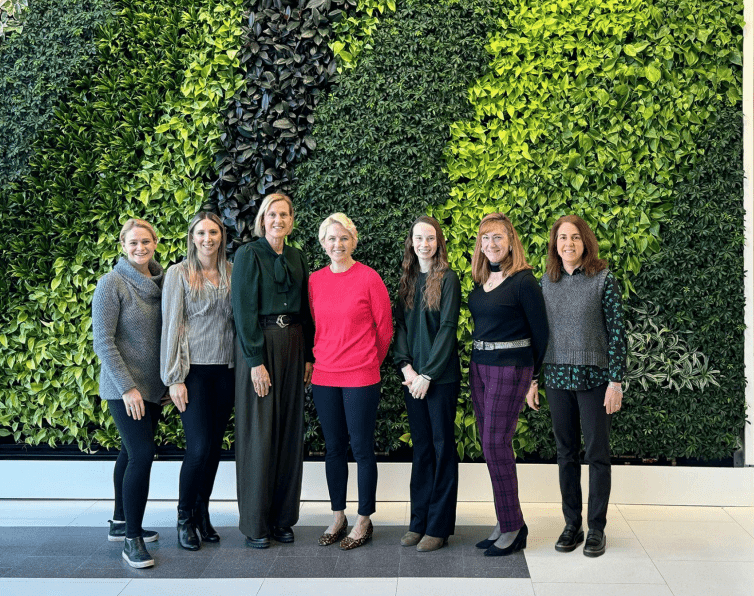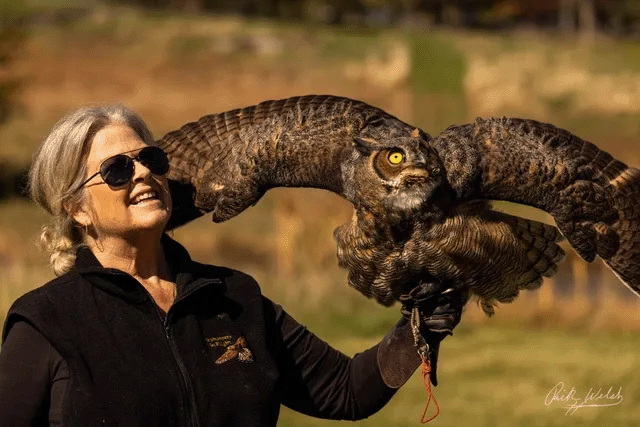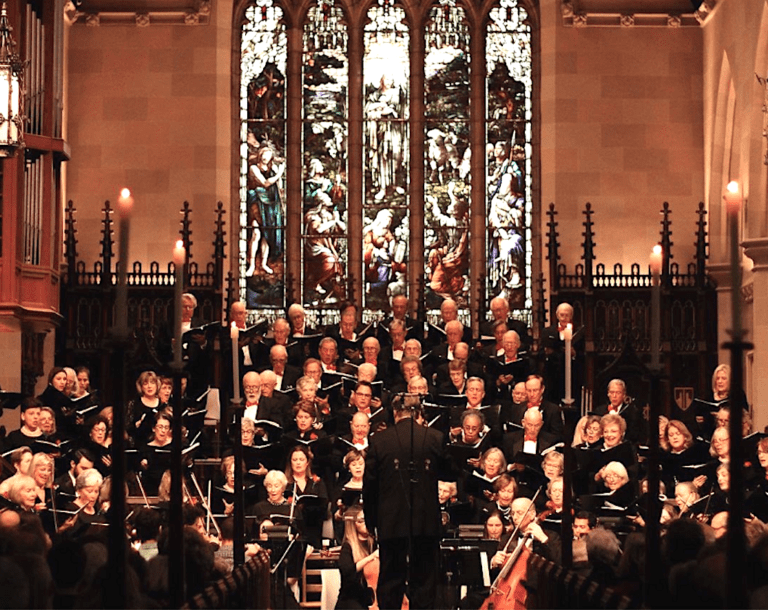
By Jack McIntyre
The Greenwich Botanical Center presents two new events this week as part of their Native Habitat Virtual Lecture Series. Join Andy Chapin, Greenwich Land Steward, on March 31 for a lecture on deer resistant tips and Sarah Coccaro, Conservation Resource Manager for Greenwich Conservation Commission, on April 7 for ways to use native vegetation to deter pests.
Chapin joins the Greenwich Botanical Center this Wednesday, March 31, for his lecture, “Deer Resistant Tips from Neighbor Andy Chapin.” Deer browsing is an integral part of what deer do to eat during the winter. However, their presence can disrupt neighborhood gardens. Chapin will be giving tips on how to use native plants for their beneficial qualities as well as how to use them to minimize deer browsing.
Chapin developed a love of gardening at an early age, learning from his mother and grandfather. He has since served the Greenwich community as the Land Steward for the Greenwich Audubon for the last 10 years. In his position, Chapin took care of 650 acres of land in Greenwich, maintaining bridges, trails, and planting projects. Additionally, he has worked with various volunteer organizations such as church groups, schools, and the Boy Scouts of America.
Chapin’s years of experience with the Greenwich Audubon will bring a unique perspective to Greenwich Botanical Center’s native plant series. In Chapin’s lecture, he will discuss how fellow Greenwich gardeners can work with native plants to establish deer resistant gardens.
“There are strategies you can use to minimize their [the deer’s] impact, such as choosing the right plants and how you combine them with other plants,” Chapin says.
More than anything, Chapin wants to emphasize the significance of using native plants in your own backyards to help maintain balance in the ecosystem.
According to Chapin, “Native plants form the foundation of our ecosystem… Without plants you have no insects. Without insects you have no animals. Many of the insects and plants have coevolved with each other over thousands of years so that they have become dependent on each other.” Chapin’s lecture is just the latest in the Greenwich Botanical Center’s series on the importance of native species in our local ecosystems.
On April 7, Sarah Coccaro will be adding to Chapin’s discussion of native plants with her lecture, “Sustainable Habitats Using Native Vegetation to Manage Wildlife.”
Coccaro will share tips for enhancing wildlife habitats and supporting pollinators while using native vegetation to deter pests. She will emphasize the importance of dealing with unwanted wildlife while encouraging beneficial pollinators including bats, bees, butterflies, owls and more.
“Nature always provides a solution even when dealing with unwanted wildlife,” Coccaro says.
Coccaro currently serves as the Conservation Resource Manager for the Greenwich Conservation Commission and is an integral member of the Greenwich Grown initiative. Coccaro’s lecture is in collaboration with Greenwich Grown.
Greenwich Grown partners with the Audubon, Greenwich Botanical Center, Greenwich Conservation Commission, Greenwich Land Trust, and the Greenwich Tree Conservancy, with support from the Connecticut Agricultural Experiment Station and Sam Bridge Nursery.
For the last three years, Sarah has led Greenwich Grown’s initiative to restore the natural habitat of Greenwich. Every fall and spring, Greenwich Grown and it’s community partners host their Pollinator Potluck event, where they visit seven sites around town to remove invasive species and plant native species.
Join Sarah Coccaro on Wednesday, April 7, to learn how you can make an impact in our local ecosystem.
As Andy Chapin says,“there are things we all can do to build a better environment.”
Learn more about the Greenwich Botanical Center’s upcoming programs at greenwichbotanicalcenter.org. All events are recorded for future access.




